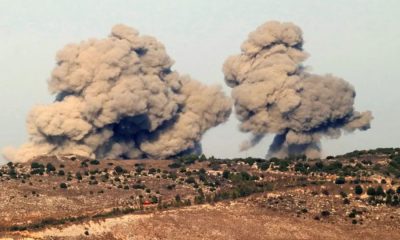International
Gaza war: Russian minister chairs UN Security Council meeting
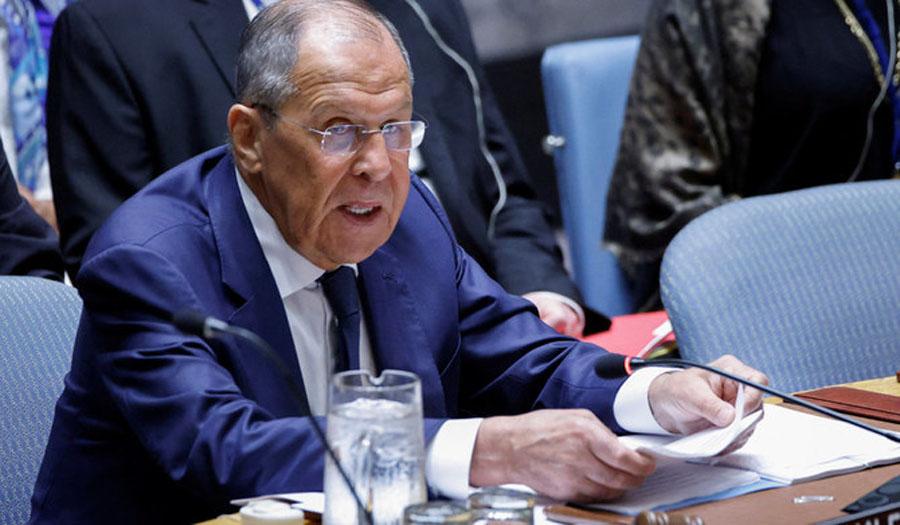
Gaza war: Russian minister chairs UN Security Council meeting
NEW YORK CITY: Speaking on behalf of UN Secretary-General Antonio Guterres on Wednesday, his chef de cabinet, Courtenay Rattray, called for the violence in Gaza to end and all parties involved in the conflict to “reach a deal, now.”
He said the humanitarian situation in the territory has become “a moral stain on us all,” and added: “Amid continued reports of serious abuses against Palestinians in Israeli custody, I reiterate that all detainees must be treated humanely and those held without lawful cause must be released. And this terrible war must end.”
Speaking during a meeting of the Security Council to discuss Palestine, he underscored the importance of “ensuring that governance is restored in Gaza under a single, legitimate Palestinian government,” support for which is “critical.”
Riyad Mansour, Palestine’s permanent observer at the UN, accused Israel of killing those people most deserving of protection, “including children, humanitarians, doctors (and) journalists,” and of defying “every nation on earth” and “every organ ever set up to uphold the most fundamental rules.”
He said: “What is happening in Gaza will go down as the most-documented genocide in history. How cruel could you be? How criminal must you be to bomb the same population, over and over and over again?
“Israel has manufactured a humanitarian catastrophe with famine as its core, starvation, dehydration and the spread of diseases as ultimate weapons.
“(Israeli Prime Minister Benjamin) Netanyahu does not care about Palestinian lives or even the hostages’ lives. He does not care about international law or human decency. He only cares about his own political survival. So what will you do to ensure this lunatic is not the one calling the shots, continuing this genocidal war against the Palestinian people?”
The Palestinian envoy vowed that his people would live “in freedom and dignity on their ancestral land. They will accept nothing less, they will accept nothing else but fulfilling this right.
READ ALSO:
- Iran rejects accusations implicating it in plot to kill Donald Trump
- Gov Zulum begs Nigerians not to stage nationwide protests
- 401 Osun LG caretaker leaders quit after S’Court judgment
“Being killed, maimed, oppressed, detained, starved, displaced is not our fate. There is a path to peace and prosperity.”
Mansour called on the Security Council to “strengthen those who seek peace rather than arm those who seek extermination; sanction those who colonize rather than allowing them to punish those who oppose the uprooting and displacement of communities; protect the victims rather than the perpetrators; recognize the state of Palestine rather than witness the destruction of the two-state solution.”
In his speech to the council, Israel’s envoy to the UN, Gilad Erdan, focused solely on Iran, accusing the regime in Tehran of being “obsessed with killing Jews everywhere, not only in Israel.”
He said: “Iran has a global reach and it’s exporting its bloodshed and destruction to the four corners of Earth.
“If one looks at all of the major conflicts in the Middle East, one finds the nefarious fingers of Iran. The people of Lebanon, Syria, Iraq, Yemen and many others have all suffered because of Iran’s attempts to inflame the region.”
Erdan said that since the Oct. 7 attacks by Hamas last year, Israel has also come under assault from Lebanon, Syria, Iraq and Yemen, and that “all of the terrorist groups targeting us have one thing in common: they are directed from Tehran.”
He warned: “If we reach a situation of full-scale war in Lebanon, it is only because Hezbollah has shot thousands of rockets at Israeli civilians with the support and funding of Iran. You cannot say you didn’t know.”
Erdan also warned the regime in Tehran that if it continues to threaten the region “it will find that its days are numbered. The proud Iranian people have had enough. The good people of the Middle East have had enough and so have we.”
Russia holds the rotating presidency of the Security Council this month and the meeting was chaired by Sergey Lavrov, Russia’s foreign minister. He said a “frank and honest conversation” is needed about how best to immediately stop the bloodshed in Gaza and move toward the long-term settlement of “both long-standing and relatively new conflicts in the region.”
He added: “From the outset, we have highly valued the constructive potential of the Arab Peace Initiative launched by the Kingdom of Saudi Arabia in 2002. At the same time, we respected the decision of a number of Arab states to normalize relations with Israel prior to the resolution of the Palestinian question.”
READ ALSO:
- JUST IN: Imo Assembly recommends removal of chief judge over age falsification
- Tinubu seeks Senate approval for N6.2tn addition to 2024 budget
- Alleged $6bn fraud: Court denies ex-power minister’s request for medical trip
Lavrov accused the US of becoming a direct accomplice in the conflict in Gaza “by providing diplomatic cover for Israel’s actions and supplying (it with) arms and ammunition, just as it has done with the situation in Ukraine.
“If the US were to end its support, the bloodshed would stop but the US is either unwilling or unable to do so. It seems its goal is not saving human lives but various maneuvers that would help to score more points during the election campaign.”
He highlighted the important role the Gulf states can play and said the recent Iranian elections, and initial statements by the country’s new president, Masoud Pezeshkian, give “hope for rapprochement among all the countries of the Gulf in the interests of overcoming long-standing differences and mistrust, and joining efforts to determine the parameters of their own mutual security without external interference, and to speak with one voice to realize the aspirations of the Palestinian people and generally build an architecture of stability and good neighbors.”
Linda Thomas-Greenfield, the US representative at the UN, said progress is being made on a ceasefire deal. Israel and Hamas have both agreed to the framework for an agreement, which was endorsed by the Security Council in its adoption of Resolution 2735 on June 10, although there are still gaps to be closed, she said as she called on council members to maintain pressure on Hamas to accept the deal and begin implementing it “without delay and without conditions.”
She added: “We’re hopeful that a ceasefire in Gaza would assist diplomacy aimed at deescalating the situation along the blue line, which is necessary to enable displaced people in Israel and Lebanon to return home.”
Thomas-Greenfield condemned in “the strongest terms” the significant increase in deadly violence against Palestinian civilians by extremist settlers in the West Bank, and reiterated Washington’s concern about a recent announcement by Israeli authorities of settlement expansion, which she said is “inconsistent with international law and detrimental to the two-state solution.”
Slovenia’s envoy, Samuel Zbogar, said: “There is no moral equality between Israel and Hamas. However, the conduct of both actors against civilians is deplorable and constitutes a crime.
“Neither Hamas nor Israel care about civilians. Hamas is hiding among IDPs (internally displaced persons) and thus endangering lives of their fellow Palestinians, while Israel is showing complete disregard for the suffering of civilians, in (its) pursuit of Hamas.”
Gaza war: Russian minister chairs UN Security Council meeting
ARAB NEWS
International
2 Nigerians in US face heavy jail term over fraud
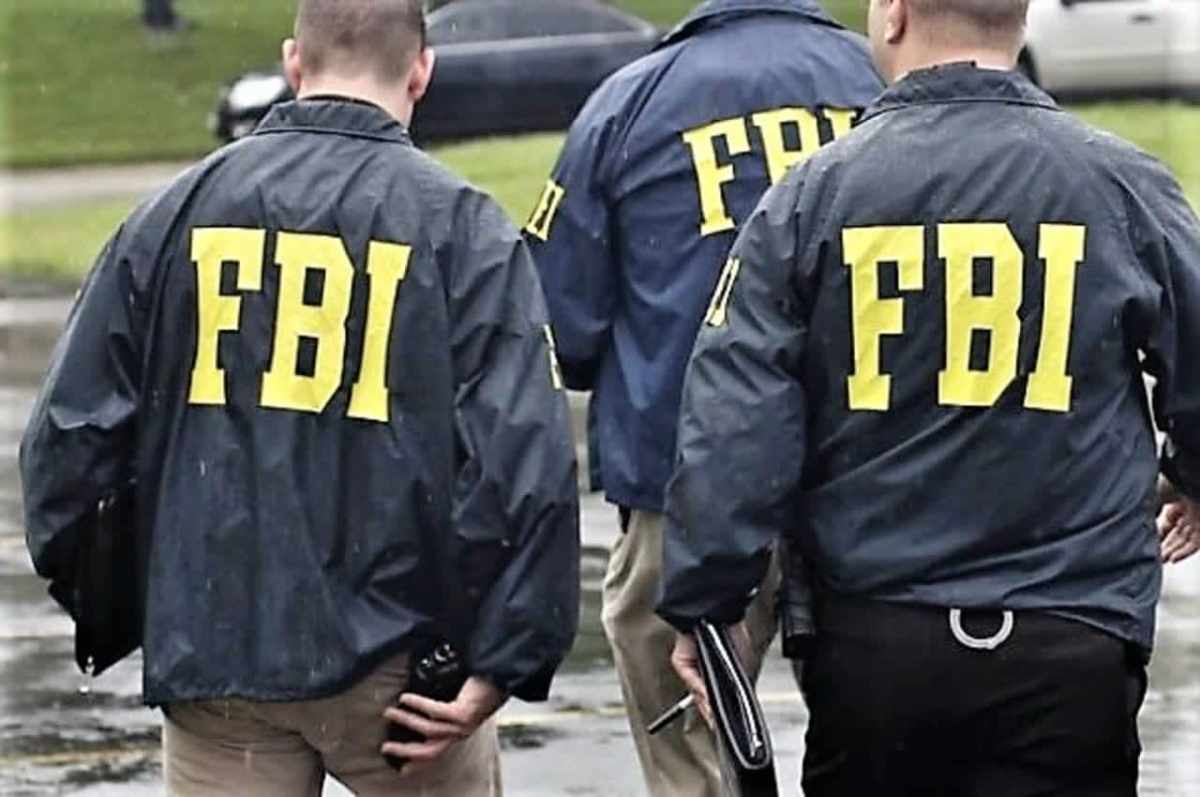
2 Nigerians in US face heavy jail term over fraud
Two Nigerian nationals based in the United States, Solomon Aluko and Nosakhare Nobore, alongside four others, are facing a possible 62-year prison sentence each after being arraigned before a New York court for allegedly defrauding the U.S. government of $50 million.
It was gathered from a court document obtained on the US Department of Justice website on Sunday that the suspects were arraigned on four counts bordering on conspiracy to commit wire fraud and bank fraud, conspiracy to commit money laundering, engaging in a monetary transaction in property derived from specified unlawful activity, conspiracy to defraud the government, and aggravated identity theft.
The court document indicated that the suspects committed the offences between March 2020 and March 2025, in the Southern District of New York and across other places in the US.
The charge sheet noted that “the defendants, and others, worked together to steal money that did not belong to them by passing counterfeit, stolen, and fraudulently obtained cheques. They submitted the cheques to banks and then withdrew or transferred funds before the banks could determine that the cheques were counterfeit, stolen, or fraudulent.”
According to the document, the defendants allegedly stole information and identities of different individuals and businesses and used the information and identities to open bank accounts through one of their members, who was a bank teller at the time.
The bank accounts were allegedly used to deposit fraudulently obtained cheques from different US agencies.
It continued, “Once the cheques were deposited, the defendants withdrew the fraudulently obtained funds in cash or transferred them to other bank accounts under their control.
“Throughout their scheme, the defendants attempted to obtain approximately $80 million in total. They succeeded in depositing approximately $50 million.”
In a statement accompanying the document on the DoJ website, it was revealed that the suspects created a ‘fraud bible’, which contained specific instructions on how each member of the syndicate would operate.
READ ALSO:
- Canada denies 13,000 Nigerians refugee status
- Lagos Govt to redesign Oshodi motor park for rail integration
- Nurse punished in UK for addressing convicted transgender paedophile as ‘Mr’
- Ex-LG chair challenges El-Rufai’s claims on council funds
It further noted that the syndicate also openly communicated its operations via a Telegram group where discussions on their operations were held.
Commenting on the activities of the syndicate, the statement quoted the US FBI Acting Assistant Director, Leslie R. Backschies, as saying, “These six defendants allegedly used sham businesses, stolen, and fake identities to operate a multi-year cheque fraud scheme, resulting in $50 million in illicit funds being deposited into their accounts.
“The defendants brazenly attempted to exploit multiple United States government programmes in their attempts to illegally enrich themselves. The FBI will continue to ensure fraudsters attempting to lie, cheat, and steal from the government answer for their crimes in the criminal justice system.”
Similarly, the US IRS Special Agent in Charge of the case, Harry Chavis, said, “This group of suspects openly communicated about their fraud, taking pride in the multiple schemes that stole nearly $50 million from the American public.
“They lied and cheated a benefits system meant to help struggling businesses that need it, all while stealing cheques from agencies that assist the elderly and veterans. This gang of ‘bag hunters’ will now face justice for multiple charges.”
Following their indictment, the statement noted that the suspects could be sentenced to 62 years imprisonment each for the four counts.
It acknowledged that the defendants were presumed innocent until proven guilty by the court.
“Anand, 34, of Queens, New York; Nobore, 29, of Edgewater, New Jersey; Pappas, 28, of Miami, Florida; Ujkic, 44, of Ft. Lauderdale, Florida; Aluko, 29, of Hackensack, New Jersey; and Gonzalez, 28, of North Bergen, New Jersey, are each charged with conspiracy to commit wire fraud and bank fraud, which carries a maximum sentence of 30 years in prison; conspiracy to commit money laundering and engaging in a monetary transaction in property derived from specific unlawful activity, which carries a maximum sentence of 20 years in prison; conspiracy to defraud the government, which carries a maximum sentence of 10 years in prison; and aggravated identity theft, which carries a mandatory sentence of two years in prison.
“The maximum potential sentences are prescribed by Congress and are provided here for informational purposes only, as any sentencing of the defendants will be determined by a judge.
“The charges contained in the indictment are merely accusations, and the defendants are presumed innocent unless and until proven guilty,” the statement concluded.
2 Nigerians in US face heavy jail term over fraud
(Punch)
International
Canada denies 13,000 Nigerians refugee status
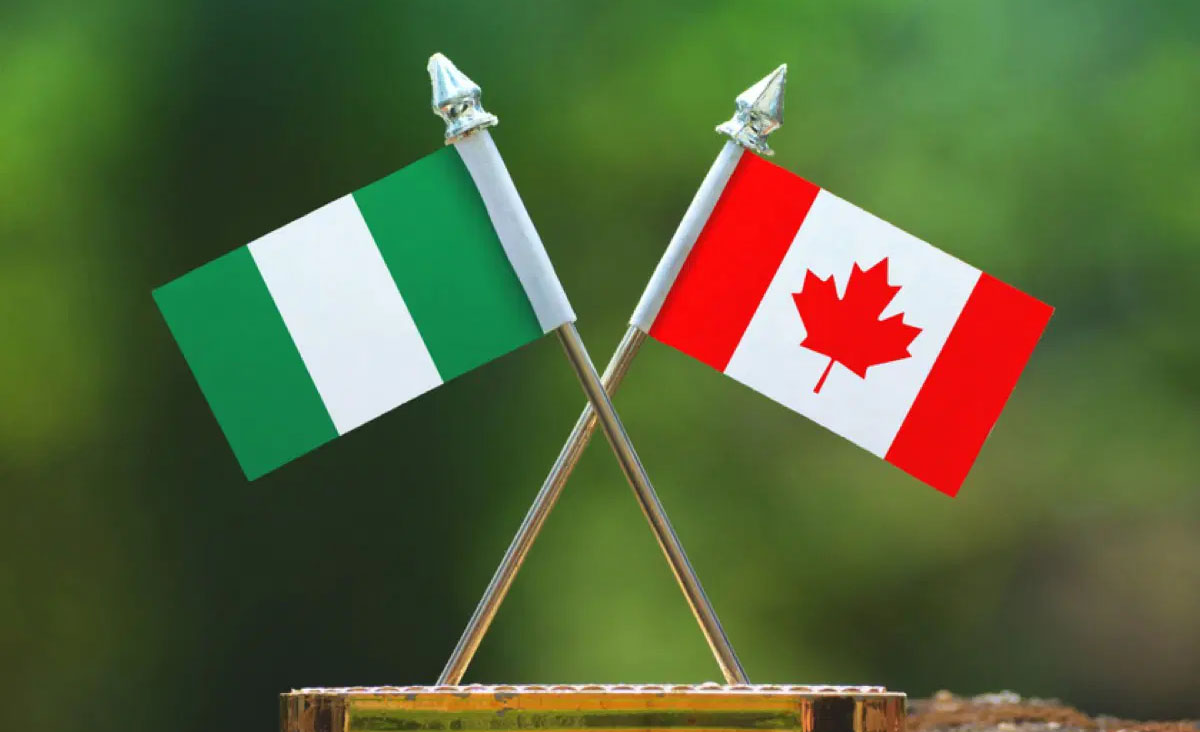
Canada denies 13,000 Nigerians refugee status
Over 13,000 Nigerians who applied for refugee protection in Canada from January 2013 to December 2024 were rejected.
According to data from the Refugee Protection Division (RPD) of the Immigration and Refugee Board of Canada, this figure includes 811 Nigerians whose applications were turned down in 2024.
The board placed Nigeria among the top five countries with the most rejected claims.
Mexico tops the list with 2,954 rejections, followed by India and Haiti, which have 1,688 and 982 rejected claims, respectively.
Colombia is in fourth place with 723 rejected claims, while Nigeria is in fifth place with 13,171 rejections.
In Canada, asylum seekers get refugee protection if the RPD satisfactorily confirms that their claims meet the United Nations definition of a Convention refugee.
In its definition of the Status of Refugee, the 1951 UN Convention states refugees are persons who have a substantiated fear of persecution because of their race, nationality, religion, political ideology or membership in a particular social group, which can include sexual orientation, gender identity, being a woman and persons living with HIV/AIDS.
READ ALSO:
- Lagos Govt to redesign Oshodi motor park for rail integration
- Nurse punished in UK for addressing convicted transgender paedophile as ‘Mr’
- Ex-LG chair challenges El-Rufai’s claims on council funds
However, in Canada, asylum seekers are expected to show evidence that they are in danger of torture, risk to their life or risk of cruel and unusual treatment or punishment if they return to their country of nationality.
According to the Refugee Board’s application guideline, if an applicant’s “claim is eligible, it is sent to the RPD to start the claim for refugee protection process.”
The breakdown of the rejections showed that 127 Nigerian claims were rejected in 2013, 241 in 2014 and 248 in 2015.
Canada denies 13,000 Nigerians refugee status
International
Nurse punished in UK for addressing convicted transgender paedophile as ‘Mr’
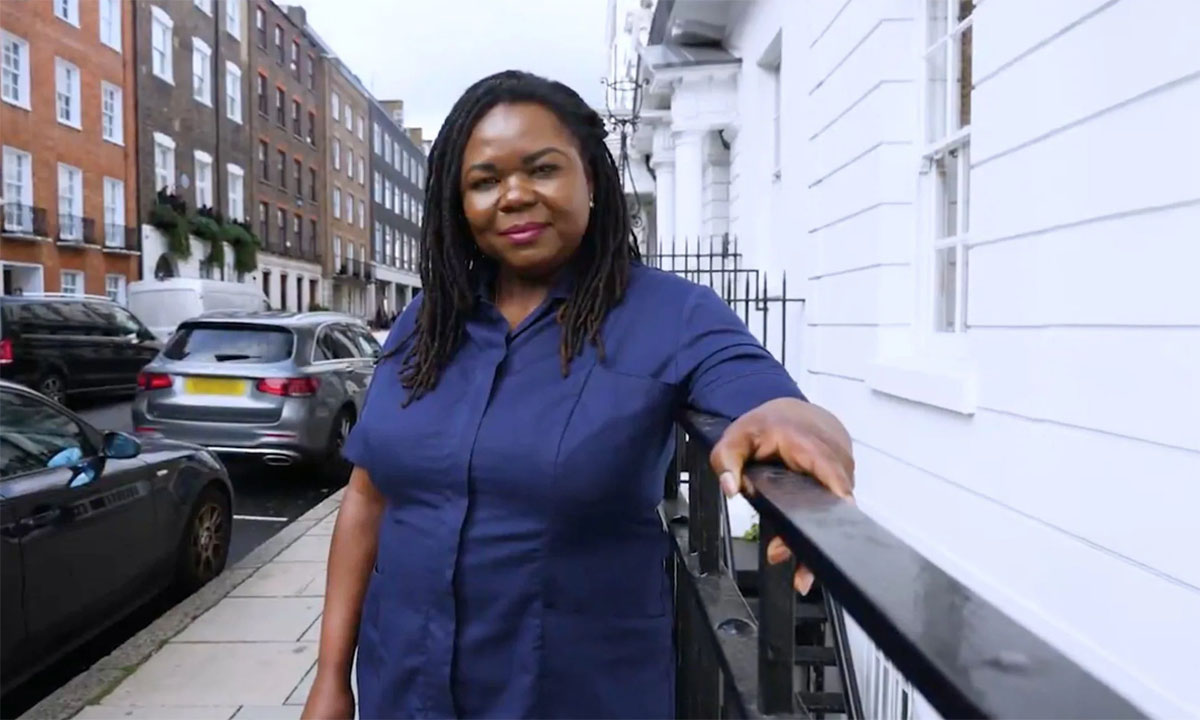
Nurse punished in UK for addressing convicted transgender paedophile as ‘Mr’
A senior nurse in the UK is battling to save her career after facing disciplinary action for refusing to refer to a convicted child sex offender as a woman.
Jennifer Melle, 40, from Croydon, was working at Epsom and St Helier University Hospital Trust when she declined to use female pronouns for a paedophile known as ‘Mr X,’ per report from the London Standard.
The offender, currently serving time in a high-security male prison, was jailed for grooming boys online while posing as a teenage girl.
Following her refusal, Melle claims she was subjected to racial abuse and physical threats.
She was, reportedly, then issued a final written warning and referred to the Nursing and Midwifery Council (NMC) for allegedly breaching professional standards.
READ ALSO:
- Ex-LG chair challenges El-Rufai’s claims on council funds
- Some ladies in movie industry ready to sleep their way to fame — Jide Kosoko
- Gunmen abduct Catholic priest in Anambra
NHS lawyers argued that Melle’s Christian belief—that people are born male or female—was “not worthy of respect in a democratic society.”
An internal investigation found she had violated the NMC Code of Conduct by failing to respect the patient’s “preferred identity” and uphold the Trust’s core value of “Respect.”
As a result, Melle has been moved to another ward, which she says is a demotion, and has had her name removed from internal hospital systems, preventing her from applying for additional shifts.
Now, with the backing of the Christian Legal Centre, she has launched legal action against the Trust, alleging harassment, discrimination, and breaches of her human rights.
The case comes amid growing controversy over gender policies in public institutions.
A recent report, the Sullivan Review, revealed that UK police forces have been allowing criminals to self-identify their gender on official records, sparking nationwide debate.
Nurse punished in UK for addressing convicted transgender paedophile as ‘Mr’
-

 metro3 days ago
metro3 days ago‘We’re not hiring,’ NNPC denies viral recruitment adverts
-

 metro2 days ago
metro2 days agoNatasha: Court blocks recall attempt, stops INEC
-
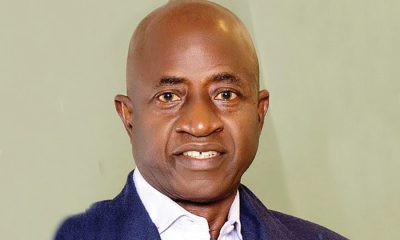
 Sports2 days ago
Sports2 days agoOdegbami speaks on Osimhen breaking his 44-year goals record
-

 Entertainment2 days ago
Entertainment2 days agoI didn’t snatch Asake’s mother from her husband -Musibau Alani
-

 Sports3 days ago
Sports3 days ago2026 WCQ: Super Eagles move up to third place with 2-0 win in Rwanda
-

 Entertainment16 hours ago
Entertainment16 hours agoSome ladies in movie industry ready to sleep their way to fame — Jide Kosoko
-

 Sports3 days ago
Sports3 days agoOsimhen breaks Odegbami’s Eagles goal record
-

 metro2 days ago
metro2 days agoOluwo accuses Ooni of plotting to dethrone him



